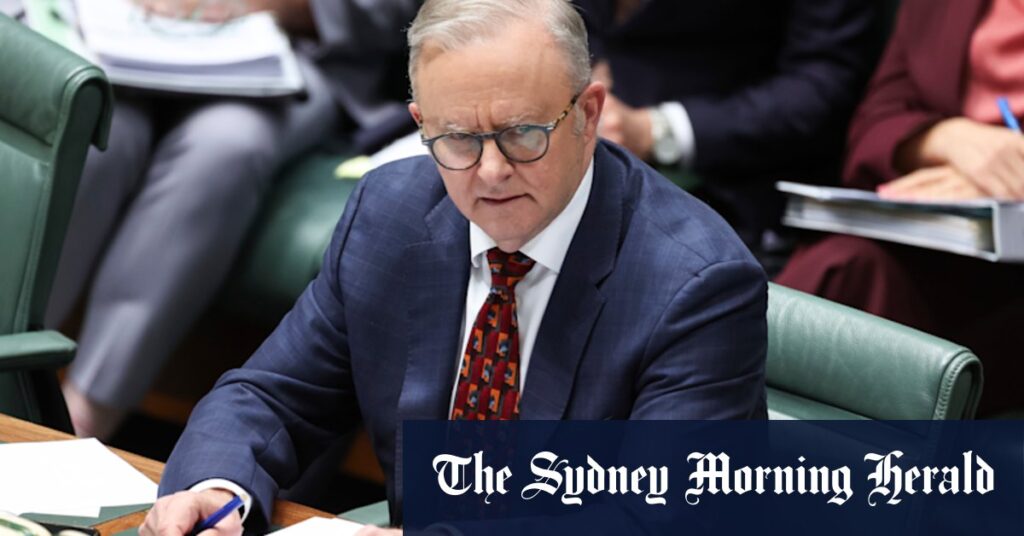
The federal opposition is set to expedite a contentious inquiry into Labor’s Nauru deportation laws, allotting a mere two hours for examination. This rapid review comes as the Albanese government successfully quashed broader investigations into its migration policies, amidst a fervent debate fueled by recent anti-immigration rallies that have reverberated into parliamentary discussions.
As the week unfolds, both One Nation and the Coalition have called for renewed discourse on immigration levels. In response, Labor has declared that the permanent migration intake will remain steady at 185,000 places, mirroring last year’s figures. This decision was announced amidst a backdrop of escalating tensions and public demonstrations against immigration policies.
Political Reactions and Parliamentary Dynamics
During a heated session of question time on Tuesday, Prime Minister Anthony Albanese addressed the issue, emphasizing that current visa allocations do not reflect the “real pressures facing modern Australia,” as articulated by the opposition. The Coalition has been vocal in its push for a Senate inquiry to scrutinize the government’s immigration strategies in greater detail.
However, Labor has resisted these efforts, with Albanese reassuring his caucus that net overseas migration levels are stabilizing. He urged MPs to approach the public discourse with caution, warning against vilifying individuals who participated in the weekend’s marches, many of whom he noted have legitimate concerns about migration.
Historical Context and Policy Implications
The current debate over migration is not new to Australian politics. Historically, immigration has been a polarizing issue, often reflecting broader societal concerns about economic stability, cultural integration, and national security. The recent rallies and subsequent parliamentary discussions underscore the persistent divisions within the country regarding how best to manage immigration.
Experts suggest that maintaining a steady migration intake is crucial for addressing labor shortages and supporting economic growth. However, critics argue that the current policies fail to adequately address infrastructure pressures and social cohesion challenges.
“Australia’s immigration policy needs a comprehensive review to ensure it aligns with the country’s economic needs while addressing public concerns,” said Dr. Emily Tran, a migration policy expert at the University of Sydney.
Future Directions and Potential Outcomes
The expedited inquiry into the Nauru deportation laws is expected to yield limited insights due to its constrained timeframe. Nonetheless, it highlights the opposition’s determination to keep immigration at the forefront of the political agenda. Meanwhile, the Albanese government faces the challenge of balancing economic imperatives with public sentiment.
Looking ahead, the debate over immigration is likely to intensify as Australia grapples with its post-pandemic recovery and evolving demographic landscape. Policymakers will need to navigate these complexities carefully to forge a path that addresses both economic and social dimensions.
The outcome of the current parliamentary discussions could set the tone for future immigration policies, potentially influencing Australia’s approach to international relations and domestic growth strategies. As the nation continues to evolve, the conversation around migration will remain a critical component of its political and economic discourse.






